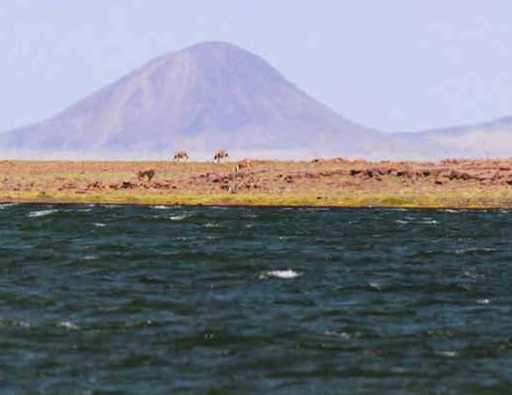There can be no environmental protection and, ultimately, no sustainable development without respect for environmental human rights defenders (HRDs), the UN Human Rights Council (“Council”) warned today through the adoption of a strong, substantive resolution on the protection of environmental HRDs. As the negative effects of climate change, resource exploitation and environmental damage on human rights go hand in hand with attacks against those defending rights related to the environment, the resolution highlights the situation, role, and protection needs of environmental HRDs.
“At a critical juncture for the livelihoods on which humanity depends, the Council stresses that any attack against environmental rights defenders is an attack against environmental rights and the environment itself,” said Hassan Shire, Executive Director, DefendDefenders. “Efforts to recognise and protect environmental HRDs should be mainstreamed throughout the UN system.”
The resolution[1] stresses the important and legitimate role environmental HRDs play in protecting the environment. It recognises that they are among the most at-risk HRDs and condemns the wide range of attacks, including stigmatisation, intimidation, judicial harassment and killings, they face. It also recognises the intersectional character of human rights violations that specific groups of defenders, including women and indigenous HRDs, are subjected to. It urges all stakeholders to step up the fight against impunity for such attacks, including when they are committed by business enterprises.
Moreover, the resolution emphasizes the importance of civic space, including the rights to freedom of expression, peaceful assembly, association, and public participation, for the protection of the environment, as an open civic space is a prerequisite for raising the alarm about, discussing, and devising solutions to address, environmental threats. Environmental HRDs, including indigenous HRDs, play a central role in making sure that the impact of business operations and development projects is assessed and that those affected are adequately consulted, in line with the business responsibility to apply due diligence and to respect human rights.
“The Council unambiguously asserts that the right to a clean, healthy, safe and sustainable environment cannot be protected without recognition of, and space for, activists and civil society,” said Nicolas Agostini, Representative to the UN for DefendDefenders.
HRC resolution 40/L.22 was adopted by consensus, that is, without any opposition. It was officially endorsed by more than 60 states from all regional groups.
The resolution adopted today is a starting point, not an end in itself. It should pave the way for more UN work on HRDs, in particular marginalised HRDs, including indigenous, women, and minority rights defenders, and for the mainstreaming of issues pertaining to HRDs and civic space within the 2030 Agenda for Sustainable Development.
The UN Human Rights Council, established in 2006, is the UN’s main human rights body. Its 47 members sit on the Council for three-year terms. Holding three regular sessions every year, the Council adopts country-specific as well as thematic resolutions, including on the situation of human rights defenders. Ahead of the Council’s 40th session (25 February-22 March 2019), DefendDefenders published a briefing paper[2] outlining our expectations in relation to a draft resolution on environmental HRDs. This paper builds upon a comprehensive report[3] on marginalised HRDs, including indigenous HRDs, published in December 2018.
For more information, please contact
Hassan Shire
Executive Director, the East and Horn of Africa Human Rights Defenders Project on [email protected] or +256 772 753 753 (English and Somali)
Estella Kabachwezi
Senior Advocacy and Research Officer, the East and Horn of Africa Human Rights Defenders Project on [email protected] or +256 782 360 460 (English)
Nicolas Agostini
Representative to the United Nations (Geneva), the East and Horn of Africa Human Rights Defenders Project on [email protected] or +41 798 134 991 (English and French)
[1] Draft resolution A/HRC/40/L.22 Rev.1, “Recognizing the contribution of environmental human rights defenders to the enjoyment of human rights, environmental protection and sustainable development,” http://ap.ohchr.org/documents/E/HRC/d_res_dec/A_HRC_40_L22_Rev1.docx (accessed on 21 March 2019).
[2] DefendDefenders, “Suggested elements for a resolution on human rights defenders (HRDs) with a focus on environmental HRDs,” 18 January 2019, https://defenddefenders.org/statement/hrc40-environmental-hrds-need-recognition-space-and-protection/ (accessed on 21 March 2019).
[3] DefendDefenders, “‘To Them, We’re Not Even Human’: Marginalised Human Rights Defenders in Uganda, Kenya, and Tanzania,” 3 December 2018, https://defenddefenders.org/marginalised-HRDs (accessed on 21 March 2019).

